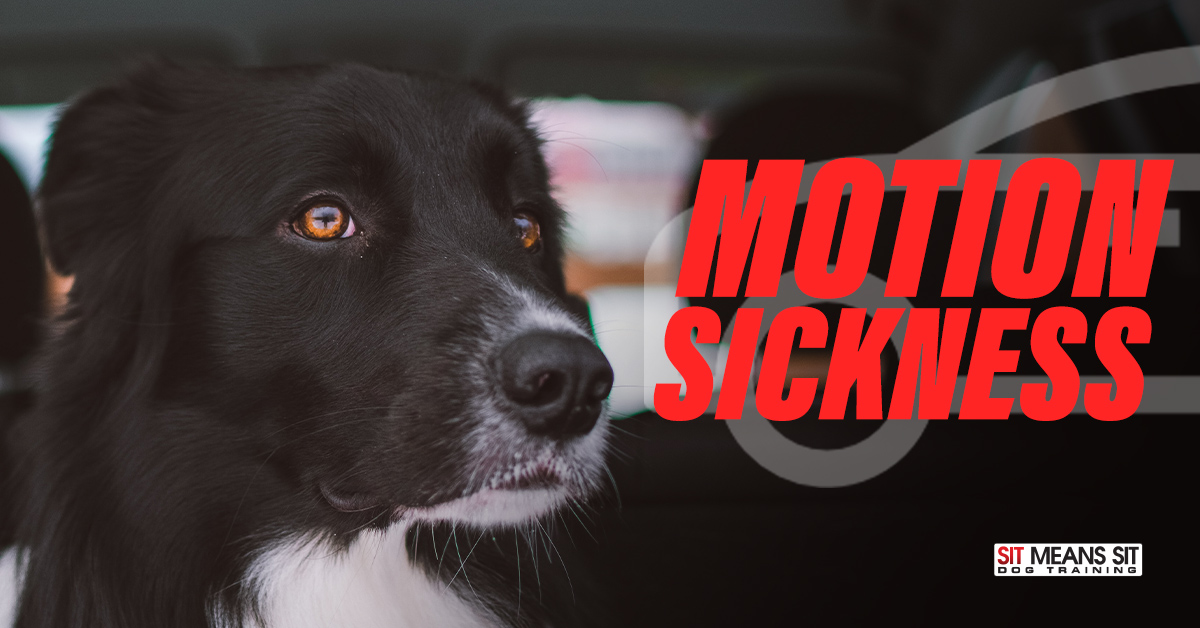
The Causes of Motion Sickness in Dogs
Whether it’s a short drive to the park or a road trip for vacation, bringing your pup along can be lots of fun. However, car sickness is an issue that many canines have to deal with – which can make car rides not so fun. If you have a pooch that suffers from motion sickness, then read on to learn more about what causes this issue and ways you can help prevent it.
Why Fido Might Have Motion Sickness
For some furry friends, the frustrating answer is that there is no rhyme or reason to the cause of their motion sickness. Some canines respond poorly to motion, while others can be completely fine for hours. However, dog motion sickness is more commonly seen in puppies and younger dogs than it is in senior canines. This is due to the ear structures used for balancing that a puppy hasn’t fully developed while a senior dog long ago has. But while some furry friends will outgrow this with age, others might not.
If the first handful of car ride your pooch goes through all left them feeling nauseous – then this could have conditioned them to associate traveling with getting sick. Stress could also be a factor that causes motion sickness. If your pup has only ever gotten in the car to see the vet, then they again might associate travel with something negative and then worry themselves sick.
How You Can Help Prevent Fido’s Motion Sickness
No matter what is causing your pup’s motion sickness, here are some tips you should try. You might experience a few trials and errors, but don’t let that discourage you – every dog is different, so your pup may prefer one method over what another dog would prefer. If possible, try to always travel with a partner when trying out these exercises, so one of you can focus on driving while the other focuses on Fido.
- Travel to a Positive Destination: If your canine’s motion sickness is due to some type of negative association, then you might be able to prevent it by creating some positive associations with travel. Choose a place that is relatively close and that you think, or know from the past, that your pup will really enjoy. Whoever chooses not to drive should spend time with your canine during the short car ride. Talk to Fido, praise them, and even play with them if you can. Be sure to act the same way on the trip back home as well.
- Have Your Dog Only Enter the Vehicle on an Empty Stomach: If your pooch’s stomach is empty, it will be pretty difficult for them to throw up while in the car. To accomplish this, try to refrain from feeding food or treats to Fido for up to 6-8 hours before your car ride. Giving them water, however, is acceptable and highly encouraging. For some dogs, this works wonders, while for others, it can make them ill from not eating.
- Stop for Breaks Frequently: Sometimes, the confinement of a car can drive your pup to be sick. So consider taking frequent breaks that allow you to go on short walks with you canine that they’ll start to look forward to as your trip progresses.
- Get Some Fresh Air in There: When feeling ill, a bit of fresh air can sometimes be all we need to settle our stomachs – and sometimes our dogs are the same way. Fresh air helps clear out the lungs and provides a feeling of refreshment.
- Talk to Your Dog’s Vet: For some pups, there isn’t an activity in the world that could stop their motion sickness – which is why sometimes medication is needed. If you can’t seem to find a solution to your pup’s motion sickness, then it’s probably time to speak with their vet, they’ll be able to help you decide on a plan that’s the best fit for you canine companion.
Motion sickness can be a real pain for both you and your pooch – some will outgrow it, while others might not. But if you follow these tips and talk to your pup’s vet, you should be seeing positive results in no time.
